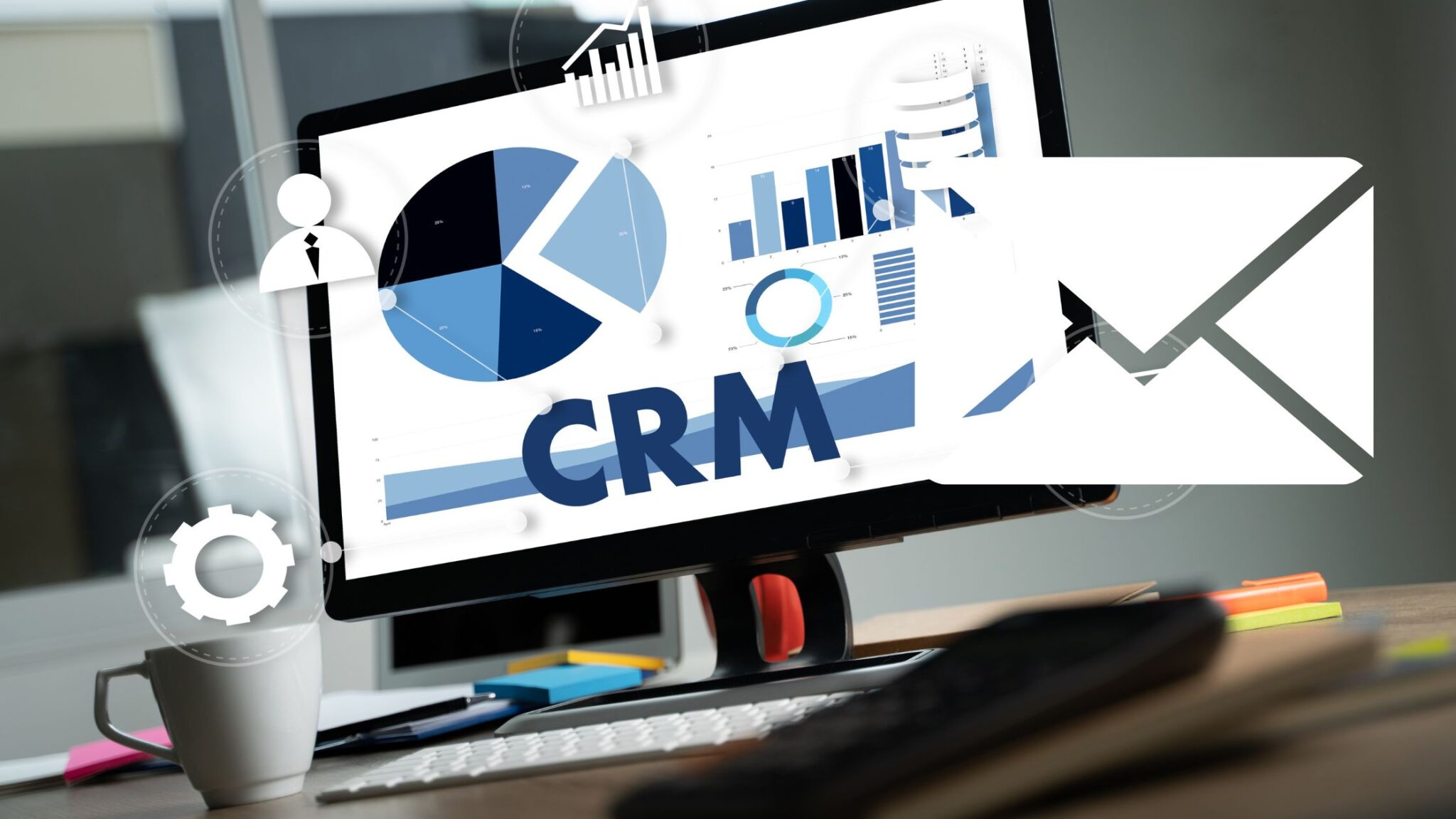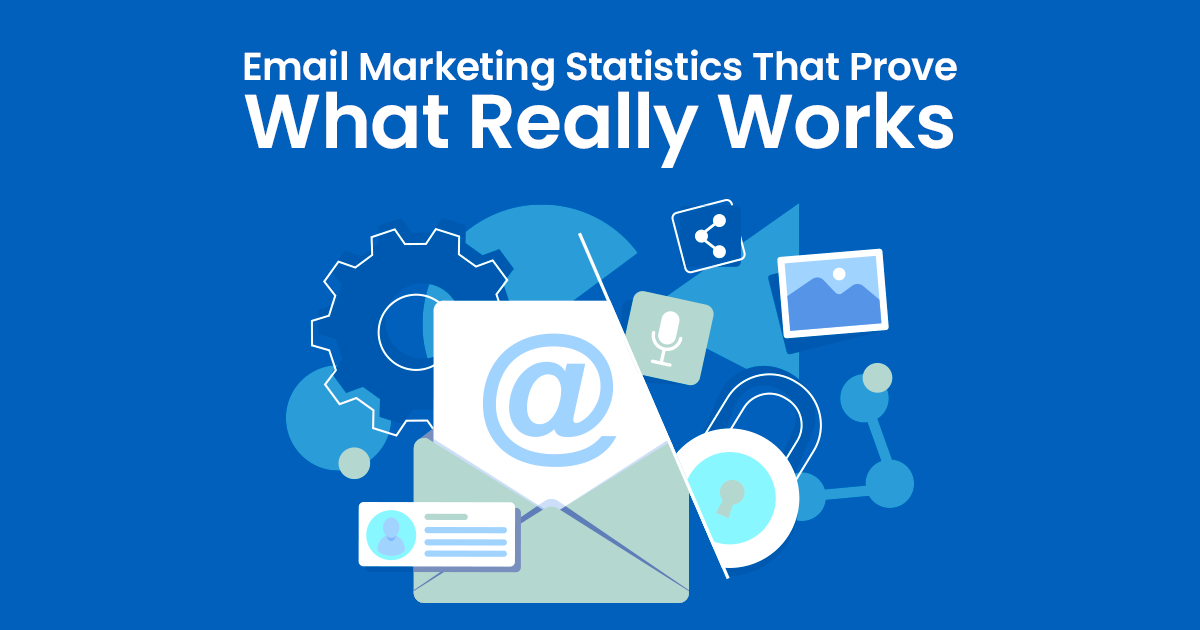Customer Relationship Management (CRM) systems and email marketing platforms are two types of business software.
But which one should you choose? CRM vs email marketing – it’s a debate that many businesses grapple with.
In this blog, we’ll explain email marketing vs CRM key differences and help you grow your business.
So, let’s get started!
What is CRM?
Customer Relationship Management (CRM) refers to a system or software that helps businesses manage and analyze customer interactions and data throughout the customer lifecycle.
The primary goal is to improve customer service relationships, assist in customer retention, and drive sales growth.
Key Features of CRM
1. Centralized Customer Data
A CRM system stores all customer information in one place.
This includes contact details, purchase history, and any previous interactions with the company.
This centralized data helps businesses get a high level view of their customers.
2. Automation of Sales and Marketing Processes
CRM systems can automate various sales and marketing tasks such as sending follow-up emails, scheduling appointments, and tracking sales performance.
This not only saves time but also ensures that no potential lead slips through the cracks.
3. Customer Segmentation
With a CRM, you can segment your customers based on various criteria such as purchase history, demographics, and behaviour.
This allows for more targeted and personalized marketing efforts.
4. Reporting and Analytics
CRMs provide detailed reports and analytics on customer interactions, sales performance, and marketing campaigns.
This data-driven approach helps businesses make informed decisions.
Benefits of CRM
Improved Customer Relationships
By having all customer information at your fingertips, you can provide a more personalized and efficient service.
Increased Sales
Automation of sales tasks and better management of leads can boost sales.
Better Customer Retention
With detailed insights into customer behaviour and preferences, businesses can devise strategies to retain customers.
What is Email Marketing?
Email marketing involves sending targeted emails to a group of prospects or customers.
It’s a direct form of marketing that uses email to promote products or services, build relationships, and keep customers informed.
Key Features of Email Marketing
1. Targeted Campaigns
Email marketing platforms allow businesses to create targeted campaigns based on customer data.
You can segment your email list to send personalized messages to different groups.
2. Automation
Email marketing tools enable the automation of email campaigns.
You can set up automated welcome emails, follow-ups, and promotional messages based on customer actions.
3. Analytics and Reporting
These platforms provide detailed analytics on email performance, including open rates, click-through rates, and conversions.
This helps businesses understand what works and what doesn’t.
4. Customizable Templates
Most email marketing tools come with customizable templates, making it easy to create professional-looking emails without any design skills.
Benefits of Email Marketing
Cost-Effective
Email marketing is one of the most cost-effective marketing strategies with a high return on investment.
Direct Communication
It allows businesses to communicate directly with their customers and prospects.
Measurable Results
Detailed analytics help businesses track the performance of their campaigns and make necessary adjustments.
CRM vs Email Marketing: The Key Differences
Understanding the difference between CRM and email marketing is important for businesses to leverage these tools.
Here’s a detailed comparison:
1. Functionality and Purpose
CRM
Managing customer relationships and interactions.
Enhances customer service, retention, and sales through data management and automation.
Email Marketing
Sending targeted marketing emails.
Promotes products or services, builds customer relationships, and informs customers.
2. Data Management
CRM
Stores detailed customer information, including interactions, purchase history, and personal details.
Provides a holistic view of each customer, aiding in personalized service.
Email Marketing
Primarily focuses on email addresses and basic segmentation data.
Data is used to create and manage email campaigns rather than overall customer relationship management.
3. Automation
CRM
Automates various sales and marketing tasks, including follow-ups, scheduling, and lead management.
Supports complex workflows that go beyond email campaigns.
Email Marketing
Automates email sending based on triggers and customer actions.
Limited to email-related tasks and simple workflows.
4. Reporting and Analytics
CRM
Provides detailed insights into customer interactions, sales performance, and overall business metrics.
Allows for customized reporting based on various criteria and metrics.
Email Marketing
Focuses on email performance metrics like open rates, click-through rates, and conversions.
Provides reports on individual email campaigns rather than overall customer relationships.
CRM vs Email Marketing Examples and Use Cases
To better understand how these tools work in real-world scenarios, let’s look at some Email marketing vs CRM examples:
1. CRM in Action
A mid-sized business, implemented a CRM system to manage their growing customer base.
Before the CRM, they struggled with tracking customer interactions and follow-ups.
With the CRM, they were able to automate their sales processes, track customer interactions, and generate detailed reports on sales performance.
This led to a 20% increase in sales and improved customer satisfaction.
2. Email Marketing in Action
Online Store used an email marketing platform to boost their online sales.
They segmented their email list based on customer purchase history and sent targeted promotional emails.
They also set up automated email campaigns for cart abandonment and post-purchase follow-ups.
As a result, they saw a 30% increase in email open rates and a 25% increase in conversions.
3. Combining CRM and Email Marketing
A small business, combined their CRM system with an email marketing platform.
They used the CRM to manage customer data and interactions, while the email marketing platform handled their email campaigns.
By integrating the two systems, they were able to create highly targeted email campaigns based on detailed customer data from the CRM.
This integration led to a 15% increase in customer retention and a 10% increase in sales.
CRM and Email Marketing for Small Business: Making the Right Choice
For small businesses, the choice between CRM and email marketing can be challenging.
Both tools offer benefits, but which one is right for you? Let’s explore:
Benefits of CRM for Small Businesses
Customer Insights
A CRM provides detailed insights into customer behaviour, helping small businesses tailor their services and marketing efforts.
Efficiency
Automation of sales and customer service tasks saves time and ensures consistency.
Growth
By managing customer relationships effectively, small businesses can drive growth and retain customers.
Benefits of Email Marketing for Small Businesses
Cost-Effective
Email marketing is affordable and offers a high return on investment, making it ideal for small businesses with
limited budgets.
Direct Engagement
It allows for direct communication with customers and prospects, fostering strong relationships.
Measurable
Detailed analytics help small businesses understand the effectiveness of their campaigns and make data-driven decisions.
Which Should You Choose?
The choice between CRM and email marketing for small business depends on your specific needs and goals.
If your primary focus is on managing customer relationships and automating sales processes, a CRM might be the better choice.
However, if you’re looking to drive sales through targeted email campaigns, an email marketing platform could be more beneficial.
The Synergy of CRM and Email Marketing
While CRM and email marketing are powerful on their own, combining them can take your business to the next level. Here’s how integrating the two can benefit your business:
1. Enhanced Personalization
With CRM data, you can create highly personalized email campaigns that resonate with your audience. This leads to higher engagement and conversions.
2. Streamlined Processes
Integration streamlines your sales and marketing processes, ensuring that all customer data is synchronized and easily accessible. This eliminates the need for manual data entry and reduces the risk of errors.
3. Improved Customer Insights
By combining CRM and email marketing analytics, you get a comprehensive view of your customers. This holistic approach allows for better decision-making and strategy development.
4. Increased Efficiency
Automation of both CRM and email marketing tasks frees up your team to focus on more strategic activities. This leads to increased productivity and efficiency.
CRM Email Meaning – Conclusion
In the debate of CRM vs email marketing, there’s no one-size-fits-all answer.
Both tools have their unique strengths and can significantly benefit your business.
The key is to understand your specific needs and goals, and choose the tool that best aligns with them.
Better yet, consider integrating both to leverage their combined power.
CRM vs Email Marketing Examples – FAQs
What is the main difference between CRM and email marketing?
The main difference lies in their primary functions. CRM systems are designed to manage customer relationships and interactions, while email marketing platforms focus on sending targeted email campaigns to promote products or services.
Is Bluedot a CRM or email marketing platform?
Bluedot is an email marketing platform. It specializes in providing tools and features for creating, managing, and optimizing email marketing campaigns to help businesses engage with their customers.
Is Mailchimp a CRM or email marketing platform?
Mailchimp is primarily an email marketing platform, but it also offers CRM features.
Is email marketing the same as CRM software?
No, email marketing and CRM software are not the same. Email marketing focuses on sending targeted email campaigns to promote products or services, while CRM software is designed to manage customer relationships and interactions across various channels.
What is the difference between CRM and EDM platform?
The difference between CRM and EDM platforms is that CRM (Customer Relationship Management) software manages customer interactions, data, and relationships across multiple channels, while EDM (Electronic Direct Mail) platforms focus on creating, sending, and tracking email marketing campaigns.
How is CRM different from marketing automation?
CRM (Customer Relationship Management) focuses on managing customer relationships, interactions, and data, to improve customer service and sales.
Marketing automation, on the other hand, automates marketing tasks and workflows, such as email campaigns, social media posts, and lead nurturing.
What is the difference between direct marketing and CRM marketing?
Direct marketing involves directly reaching out to consumers through channels like email, mail, or phone to promote products or services.
CRM marketing focuses on leveraging customer data and interactions managed through CRM systems to create personalized and targeted marketing strategies.
Relevant Guides and Tools
How Email Marketing Can Help SEO
How to Make Money with Email Marketing
How to Build an Email List for Affiliate Marketing






